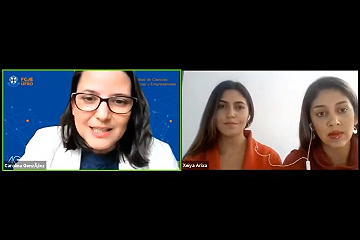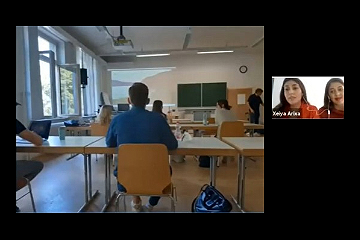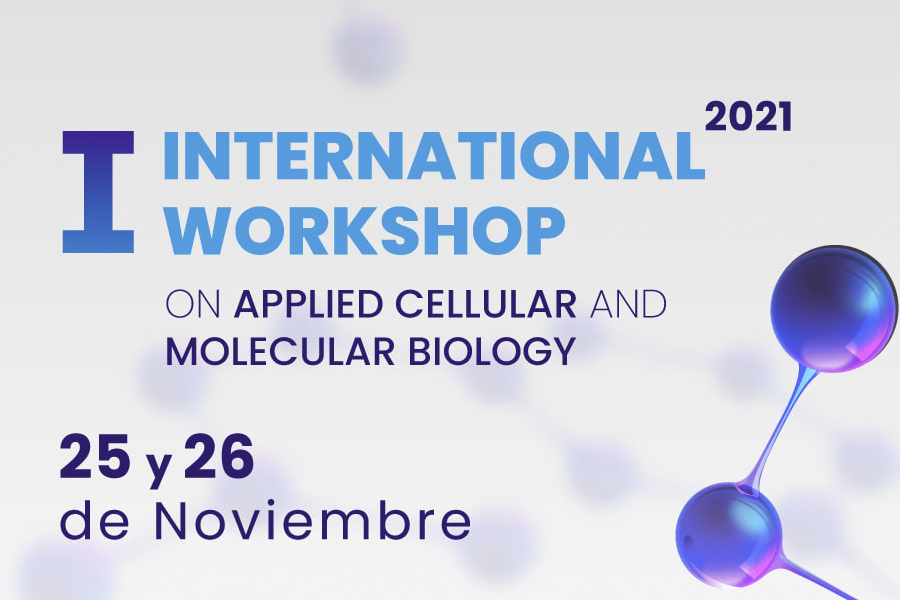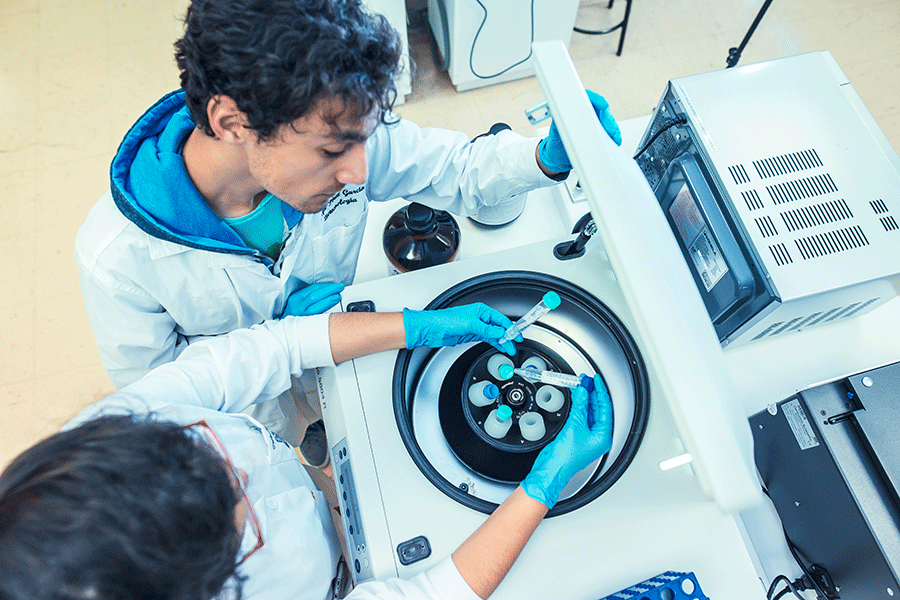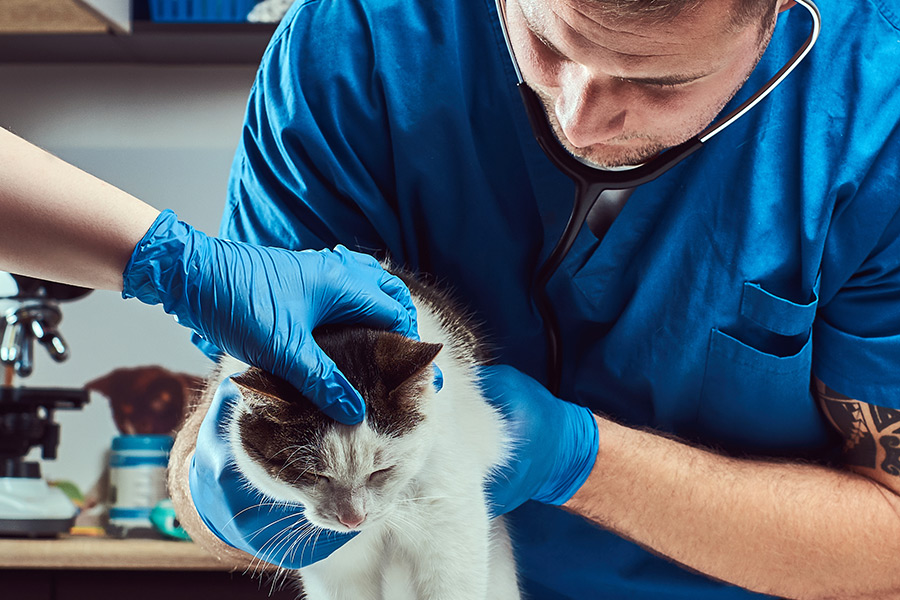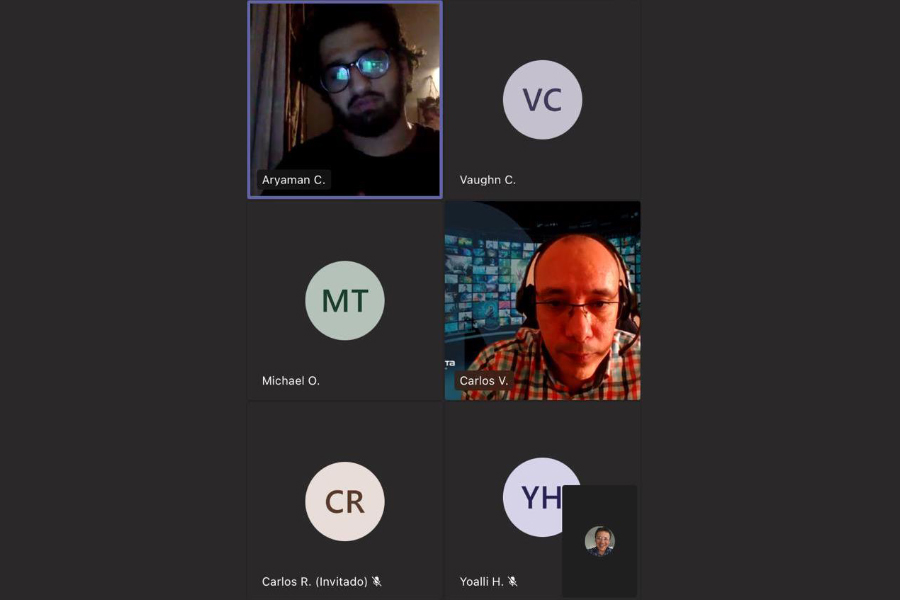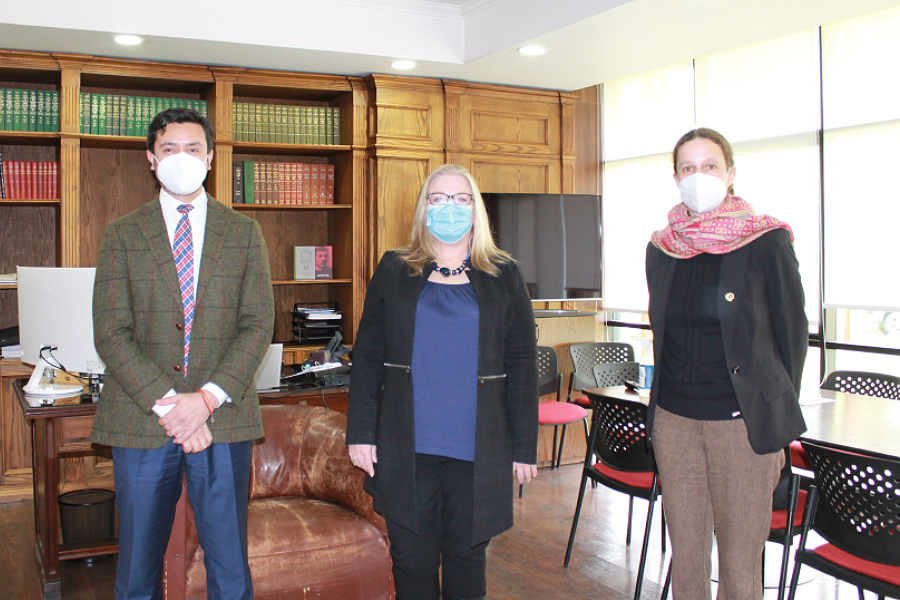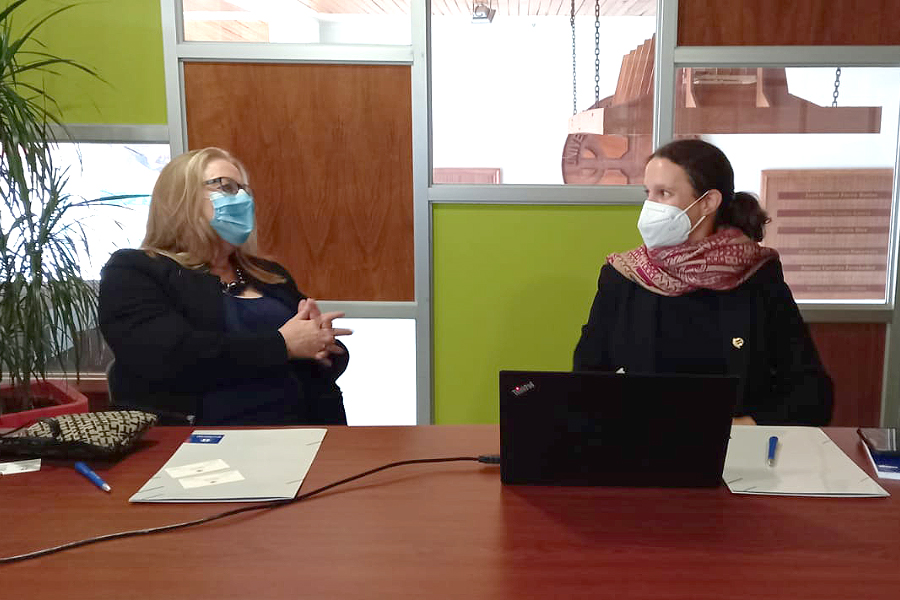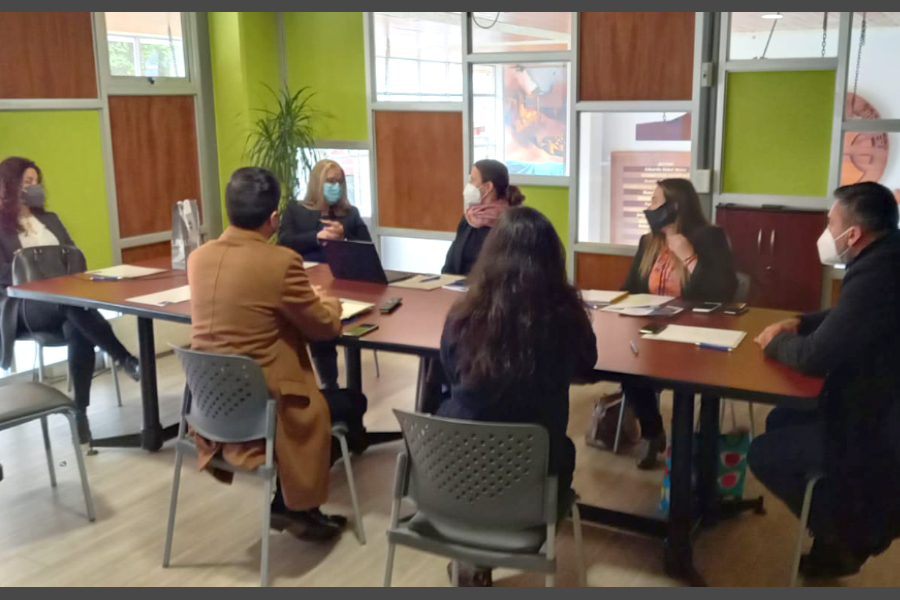|
Two of the three Business Engineering students of UFRO, who received the DHBW-Ravensburg Scholarship, shared their international mobility experiences with their peers and gave useful advice to motivate other students to participate in this kind of programs. |
The future Business Engineers of the Universidad de La Frontera (UFRO), Pamela Vera Loncomilla, Xeiya Abarzúa Cifuentes and Daniela Henríquez Cruces were awarded a scholarship by the German University Duale Hochschule Baden-Württemberg (DHBW) and started their international student mobility experience in July.
|
|
The event is organized by the Doctoral Program in Sciences with specialization in Applied Cellular and Molecular Biology of the Universidad de La Frontera and will take place online, on November 25 and 26. |
Experts and students from different countries will be part of the first International Workshop on Applied Cellular and Molecular Biology, which will take place online on November 25 and 26. The workshop is organized by the Doctoral Program in Sciences with specialization in Applied Cellular and Molecular Biology of the Universidad de La Frontera (UFRO) and is open to everybody who is interested, from the students of the Program itself, to other national and international participants. The workshop consists of different symposia that will address four main topics: Biotechnology of bioresources, Cellular and Molecular Biology of Reproduction, Cellular and Molecular Biology of Priority Diseases, and Applied Science: the challenge of linking academy and industry. “This is the first time that the Doctoral Program organized a workshop individually. It will be a valuable opportunity to present our lines of research and the academic body, and to strengthen ties with the graduate community,” says Dr. Marjorie Reyes Díaz, who is part of the academic body of the Program and in charge of organizing the workshop together with Dr. Cledir Rodríguez Santos. The connection with the graduates of the Doctoral Program actually is one of the focuses of the event, which will be addressed in the symposium “Applied Science: the challenge of linking academy and industry”, where the main guests are graduates of the program who are currently strongly linked with the industry. The registration deadline for the Workshop is from October 12 to November 20. The deadline for abstract submission is from October 12 to October 31, and the deadline for poster submission is November 12. For more information, registration or the download of the abstract guidelines, please visit: http://doctoradobiomol.ufro.cl/index.php/i-international-workshop.
Written by: Doctoral Program in Sciences with specialization in Applied Cellular and Molecular Biology, UFRO
|
|
The Universidad de La Frontera accomplished the long-awaited project of adding a new program in Veterinary Medicine to the academic offer of the university in the admission process for 2022. |
It is official. On Thursday, July 22, the Board of Directors of the Universidad de La Frontera (UFRO) approved the new program in Veterinary Medicine, a program promoted by the Faculty of Agricultural and Forestry Science. The Rector, Dr. Eduardo Hebel Weiss, highlighted that “it is a great pleasure for us to be able to add this new program to our existing offer within the celebrations of UFROs 40th anniversary. This achievement has been possible thanks to the great work of the academic body of the Faculty and of its Dean”. The Veterinary Medicine program will allow a maximum of 50 students and starts in 2022. Some of its advantages are the highly qualified academic body, the new infrastructures with clinics for small and large animals and a wildlife rescue center, the availability of experimental campuses, and a curricular proposal that is strongly linked to the needs of the La Araucanía Region and the south of Chile. The growing interest in Chile in this field confirms the relevance of the creation of this new program, which will be part of the well-established Faculty of Agricultural and Forestry Science at UFRO. “The Veterinary Medicine program will allow us to develop new synergies that complement our current undergraduate offer. In particular between Agronomy and Animal Production; Engineering in Natural Resources and Wildlife Conservation; and Biotechnology and Food Development,” the Dean, Dr. Adison Altamirano, explained. At present, veterinary medicine is mainly related to animal health, public health, biomedical research, food safety and ecosystem health. However, according to Emma Bensch, the director of the new program, there are interesting characteristics that let this proposal stand out. “In addition to the possibility of carrying out a large number of practical activities, the students can also choose from various electives to deepen their knowledge in different disciplines of the profession. In addition, the methodological strategies focus on a strong relationship with the environment, through a strong link with small producers in the region and around our Experimental Campuses,” she explained. Moreover, the UFRO program in Veterinary Medicine offers great advantages for its future graduates, since they will have the opportunity to join UFROs postgraduate programs, among others. “We designed a curricular structure that, through specialized electives, gives the students the opportunity to get an insight into our active lines of research of our Master’s and Doctoral Programs. We have always had a large number of Veterinarians in our Doctoral Programs in Applied Cellular and Molecular Biology, and in Agri-food Sciences and Environment,” added Dr. Néstor Sepúlveda, the Director of Postgraduate Programs and Research of the Faculty of Agricultural and Forestry Science. NEW BUILDING AND CLINICS FOR SMALL AND LARGE ANIMALS Simultaneously with the beginning of the Veterinary Medicine program, the construction of a new building with a surface of approximately 900 m2 (mainly for teaching activities) is planned. There will also be a Small Animal Clinic for the care and preventive care for companion animals, which will be located at the Andrés Bello Campus, with the aim of achieving closeness to the local, regional and university community, and for a better service. For the Experimental Campus Maquehue, the construction of a Large Animal Clinic is planned, for veterinary advising, animal health care and various clinical procedures. Another long-awaited project is the establishment of a Wildlife Rescue Center, for being able to contribute to the protection and recovery of species affected by anthropogenic activities.
Written by: UFRO Communications Office
|
|
Teams of future engineers of both universities are working on different projects to find business-oriented solutions. |
The health emergency has led to a series of challenges for society in general and made it necessary to adapt both training and production processes. Digital technologies have become key in the teaching-learning process, since they allow that national and international educational initiatives and programs continue. In this context, students from the Faculty of Engineering and Sciences of the Universidad de La Frontera (UFRO) in Chile and the Faculty of Design and Creative Technologies of the Auckland University of Technology (AUT) in New Zealand are participating in the program “Projects with Industry”. This initiative seeks to strengthen the connection between students of both universities and, at the same time, to solve real problems of the industry through initiatives designed collaboratively. Under the guidance of academics from both universities, the future engineers are developing solutions for Everis and WorkSafe New Zealand (WSNZ, the primary Health and Safety regulator in New Zealand) through two initiatives: “The Enigma Project” (with four AUT-students and one UFRO-student of the program in Computer Engineering) and “The Inspector Game” (with four young AUT-students and two UFRO-students). “WorkSafe New Zealand is the primary Health and Safety regulator in the country, which promotes the education about Health and Safety practices at the workplace,” explained Samaneh Madanian, the Program Advisor for Master of IT Project Management at AUT and guide for the students of the project “The Inspector Game”. “The goal of this project is to develop a digital platform that addresses the need to improve the skills of WorkSafe employees with an innovative platform that helps them to improve their skills by identifying health and safety risks at the workplace. WorkSafe will identify the training areas and manage the content of the application. That will allow a collaborative partnership and train competent and confident health and safety inspectors within the company,” she explained. According to Madanian, the main difficulty was the time difference between Chile and New Zealand, but the team mastered that challenge by using an online sharing platform, which adapted to the needs of the students from both universities. “One of the main advantages for the students in this kind of projects is that they gain experience working with international project teams. Most likely, that is exactly what they will have to do at their future workplace, too,” Samaneh Madanian said. “The students learn more independently how to deal with different challenges and how to plan a project taking into account the needs and requirements of the team members, as for example different languages and time zones. In addition, the project taught the students how to use digital solutions to mitigate some of the project risks,” she added. INTERNATIONAL EXPERIENCE According to Maya Ashizumi-Munn, who is a student from New Zealand and part of the “WorkSafe New Zealand” project, the experience of working with an international team is priceless. “We have learned a lot about how to manage a complex project with multiple teams involved. We had to adjust deadlines and to adapt to the work schedule together with the team of UFRO. It was a great challenge, however, that is how it is usually done in the industry, working together with many different teams, and I am happy that I had the chance to participate in this great learning experience,” she explained. According to Aryaman Chauhan, who is a student from New Zealand and part of the “The Enigma Project”, the international partnership between the two universities provides great opportunities for both future engineers and graduates from New Zealand and Chile. “These kind of programs give us the opportunity to improve our cultural awareness and to learn how universities work in other countries. Besides, the ability to analyze, discuss and share experiences is crucial for educational processes. Probably, the main objective of this collaborative project is the preparation it provides for professional life, since it helps us to understand how different countries operate, what might lead to better international job opportunities”, he said. Meanwhile, Susana Candia, the director of the Internationalization Node of the consortium at UFRO, explained that “it is important to promote this kind of projects, both for the international partnerships with companies in the region, achieved by the faculty, as well as for the development of the students’ global competencies by solving real problems. We hope to be able to incorporate other fields and programs in the future, in order to increase the number of companies that are part of the projects”. Currently, both projects are in the process of presenting their progress and first results, while two other projects, in which another seven students of the Faculty of Engineering and Science of UFRO will participate, are already planned. Written by: Mauricio Antivil
|
|
Different topics were addressed in the meeting, such as the internationalization of UFRO, STEM entrepreneurship, academic cooperation agreements, exchange programs, student mobility programs and English programs. |
The main objective of the meeting held at the Universidad de La Frontera (UFRO), with representatives of UFRO and the U.S. Embassy in Chile, was to strengthen collaborative ties at the international level. It was an in-person meeting with the presence of Paula Wikle, the Cultural Affairs Officer, Daniela González, the Coordinator for Professional Exchange Programs, Dr. Renato Hunter, the Vice-rector for Academic Affairs, Dr. Lorena Vieli, the director of the International Affairs Office, Franklin Valdebenito, the director of the Office of Innovation and Technology Transfer, and Paola Olave, the director of the Office for Outreach and Community Engagement. In addition, Dr. Cristian Cerda, an academic of the Department of Education, Antonia Espinoza, the Coordinator of the Student Mobility Unit, and Felipe Opazo, the director of the Language Coordination Center also joined the meeting. During the meeting, the participants made use of this opportunity to present the university and its potential to establish collaborative partnerships with universities in the U.S., and specific actions and programs that might promote this approach were discussed. “We are slowly starting to resume our in-person activities at UFRO and when it comes to international relations, it is extremely important to reconnect, especially because of the great opportunities we have to offer in terms of academic cooperation, research and development, and student mobility, thanks to our partnerships with other foreign institutions”, Dr. Renato Hunter explained. In this regard, Dr. Lorena Vieli added that “meeting in-person with these key entities after such a long time allows us to proceed with our process of internationalization, which enhances the work of our university regarding the training of our students, our research and our community engagement. We are very pleased that we were able to meet with them in person, since this allows us to build even stronger links”.
Written by: Communications Office, UFRO
|





